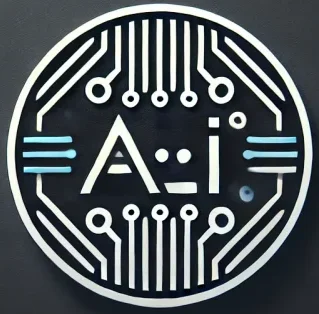## Unleashing the Power of AI: Transforming Industries and Enhancing Human Capabilities
In the ever-evolving landscape of technology, Artificial Intelligence (AI) has emerged as a pivotal force, revolutionizing industries, optimizing processes, and expanding human capabilities in unprecedented ways. As we venture deeper into the 21st century, the integration of AI into various sectors is not just enhancing operational efficiencies but is also opening new avenues for innovation and growth. This article explores the transformative impact of AI technology, how it is being applied across different industries, and what the future holds for this dynamic field.
### AI in Healthcare: Revolutionizing Patient Care and Medical Research
AI’s impact on healthcare is profound, offering transformative changes in how medical professionals diagnose, treat, and prevent diseases. AI-powered diagnostic tools can analyze medical imaging faster and with greater accuracy than human counterparts. For instance, algorithms designed for reading X-rays or MRI scans can identify subtle patterns that might be missed by human eyes. This capability not only speeds up the diagnostic process but also enhances the accuracy, leading to better patient outcomes.
Moreover, AI is facilitating personalized medicine. By analyzing data from various sources, including genetic information and clinical histories, AI systems can help in crafting individualized treatment plans that significantly improve the efficacy of treatments. Additionally, AI-driven predictive models are used to forecast disease outbreaks, enhancing the healthcare sector’s preparedness and response strategies.
### AI in Business: Streamlining Operations and Enhancing Customer Experience
In the business world, AI is a game-changer, streamlining operations, and driving efficiencies. AI technologies such as machine learning, natural language processing, and robotics are being employed to automate routine tasks, predict market trends, and enhance decision-making processes. For instance, AI chatbots and virtual assistants have revolutionized customer service, providing 24/7 support and personalized customer interactions without human fatigue.
Furthermore, AI-driven analytics are crucial for businesses in understanding consumer behavior, enabling companies to tailor their marketing strategies effectively. The ability of AI to sift through and analyze large volumes of data means businesses can quickly adapt to changes in consumer preferences and market conditions, staying ahead of the competition.
### AI in Automotive: Steering Towards Safer and Smarter Transportation
The automotive industry stands at the forefront of AI adoption, with autonomous vehicles (AVs) representing a significant breakthrough. AI systems in AVs process information from vehicle sensors and external data to make real-time driving decisions. This technology not only promises to reduce human error and road accidents but also aims to revolutionize the concept of transportation, emphasizing efficiency and safety.
Moreover, AI is integral in enhancing vehicle design and manufacturing processes. From predictive maintenance of machinery to the use of AI in designing aerodynamically efficient vehicles, the technology’s implications are vast and varied.
### AI in Education: Personalizing Learning Experiences
AI is transforming the education sector by personalizing learning experiences and making education more accessible. AI-driven platforms can adapt to individual student needs, offering customized resources and learning paths. Furthermore, AI can automate administrative tasks, allowing educators to focus more on teaching rather than paperwork.
### The Future of AI: Ethical Considerations and Beyond
As AI continues to advance, ethical considerations remain at the forefront of discussions. Issues such as privacy, security, and the potential for AI to replace jobs are critical concerns that need addressing. Moreover, the development of AI governance frameworks and ethical guidelines is crucial to ensure that AI technologies are used responsibly and for the benefit of all.
### Conclusion
AI technology is a transformative force across various sectors, driving innovation and enhancing human capabilities. As industries continue to harness the power of AI, the focus must also shift towards managing the ethical challenges that arise. By doing so, we can ensure that AI remains a tool for positive change, improving lives and transforming societies.
—
For more insights and updates on AI technology, consider subscribing to our newsletter. Stay ahead of the curve with the latest trends and innovations in AI.
